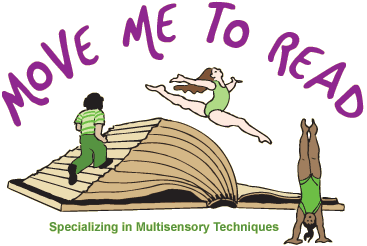 |
Speaking and listening are innate because we want to communicate and the language naturally develops as you grow.
For some people, reading and writing doesn't develop easily.
|

Why Literacy is Important
What is Linguistics?
Our Techniques
|
Most contemporary linguists work under the assumption that spoken language is more fundamental, and thus more important to study than written language. Reasons for this perspective include:
-
Speech appears to be a human universal, whereas there have been many cultures and speech communities that lack written communication;
-
People learn to speak and process spoken languages more easily and much earlier than writing;
-
A number of cognitive scientists argue that the brain has an innate "language module", knowledge of which is thought to come more from studying speech than writing, particularly since language as speech is held to be an evolutionary adaptation, whereas writing is a comparatively recent invention.
-
Speech is natural; reading and writing are learned
- The writing task requires the learner to manipulate more brain processes, by far, than does speech.
Of course, linguists agree that the study of written language can be worthwhile and valuable. The study of writing systems is considered a branch of linguistics.
Elements of linguistics:
Phonemic Awareness
Phonetics
Morphology
Syntax
Semantics
Pragmatics
Orthography
PHONEMIC AWARENESS
A phoneme is the smallest unit of sound in a word. Phonemic awareness is the ability and sometimes necessary to be a conscious knowledge to discriminate between individual sounds.
PHONETICS
Phonetics is the complex study of speech sounds. The systematic use of sounds produced in an arrangement to form language.
MORPHOLOGY
Morphology is the branch of linguistics that studies such patterns of word-formation across and within languages, and attempts to explicate formal rules reflective of the knowledge of the speakers of those languages. A morpheme is the smallest unit of meaning- known as prefixes, suffixes and roots.
SYNTAX
Syntax, originating from the Greek words syn (meaning "co-" or "together") and táxis (meaning "sequence, order, arrangement"), is the study of the rules, or "patterned relations" that govern the way words combine to form phrases and phrases to form sentences.
SEMANTICS
Semantics is the branch of linguistics concerned with the nature, structure, and development or/and changes of the meanings of speech forms, or with contextual meaning. It is the study of meanings in language which contrasts with two other aspects of meaningful expression, -syntax, and pragmatics. This structural component uses language to conveyed or serve a purpose (the meaning).
PRAGMATICS
Pragmatics is the study of language as it is used in a social context, including its effect on the interpretation of dialog and conversation. Pragmatics also investigates the relationship between words, sentences, and other elements of language, and their users.
ORTHOGRAPHY
Orthography is a writing system. In English it is a method of representing the sounds of a language by written or printed symbols, including symbol-conventions (ie punctuation, capitalization, cursive or print). The means by which we communicate without sound, through ‘black and white’.
|

|
Home |
About Us |
Literacy Classes |
Why Literacy is Important |
Further Information |
Contact / Sign Up |
Donate
Move Me To Read - Specializing in Multisensory Literacy Techniques. Kauai, Hawaii.
All contents copyright © 2024 Read Kauai. All rights reserved.
|

